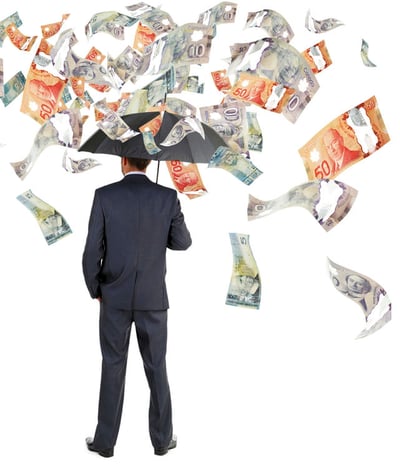Want money back from the CBSA? Here are 5 great opportunities
Ready to get money back from the Canada Border Services Agency (CBSA)? The two most common ways are:
- Duty drawbacks, and
- Duty refunds.
Duty drawback and duty refund opportunities result from a number of factors. Let’s look into the details.
Duty drawbacks
Duty drawbacks are available under two conditions:
- The goods were imported and then exported in the same condition, e.g., Acme Motor Co. imports 100 engines, and then returns them, unused.
- The goods are imported, further manufactured into a finished good, and then sold outside the country, e.g., Acme Motor Co. imports rubber and makes it into windshield wipers. The duty paid on the rubber could be refunded.
To apply for a drawback, you’ll need to complete the drawback forms and provide supporting information.
Duty refunds
Duty can be refunded because:
- The tariff classification was incorrect
- There is an undeclared duty-free end-use tariff code
- There was no Free Trade certificate used
- There’s a potential to lower the value declared to Customs (which would then lower the amount of duty owed)
Let’s dig in a little further to the duty refund side of things since they can involve several other areas or aspects of the import process.
Refunds due to tariff classification
Refund opportunities related to tariff classifications show up in two different ways:
- Sometimes, products are imported under the wrong tariff classification, and are therefore subject to a different duty rate.
- In some cases, the courts or the CBSA may rule for changes to tariff classifications and you may not be aware of it.
If you think one or more of these circumstances apply to your goods, you can apply for a ruling and prepare an argument for a different classification/rate.
Another tariff-related opportunity is from Finance Canada. They sometimes make a remission or end-use decision on certain tariff classifications where they lower or remove the duties on certain products. This situation doesn't usually mean a refund, however it may offer go forward savings.
Worth noting, tariff classification can be extremely complex. Most importers don’t have the deep knowledge to find these sorts of opportunities on their own.
A trade consultant is your best partner in this case.
- Trade consultants have the knowledge and experience to evaluate your tariff classifications and advise on potential refund opportunities.
- They can perform a thorough risk analysis review of your import files to identify opportunities.
- They have deep industry knowledge and are aware when the CBSA or courts change tariff classifications or issues remissions or end-use decisions.
Refunds due to Free Trade Agreements
For otherwise dutiable goods, if you don't use a free trade certificate on goods eligible for preferential treatment, you’ll pay more duty than you need to. Likewise, if the certificate is incorrect or your goods don’t quality, you’ll be assessed more duties than expected.
Once again, a trade consultant is your best ally, able to alert you to preferential trade agreements that your goods may be eligible for, and advising you on what may cause your goods not to be eligible.
Valuation refund opportunities
Valuation is an important one, which can either be a risk or an opportunity.
Even if your goods are duty-free, the CBSA requires importers to declare the correct value of those goods.
- The risk is that if the value should have been higher, you could owe additional duty, GST, and interest on the underpaid amounts.
- However, if the value can be lowered, it opens the opportunity for duty refunds.
How do I know if I qualify?
The number-one best way to determine if you have potential refund or drawback opportunities, is to get a thorough risk analysis done by an experienced trade consultant.
Your consultant will pore through your import documentation to find unclaimed opportunities that can result in savings, refunds, or both. A trade consultant will also be current with any changes from Finance Canada and the CBSA.
Your partner in trade
Because the trade landscape is always changing, Cole’s Consulting team recommends an annual review or risk analysis to help you identify and mitigate errors, and maximize, to the extent possible, opportunities available to you.
Having a trade consultant in your corner can help keep your supply chain on track. With more than 60 years of experience, we are your most trusted partner in trade.

